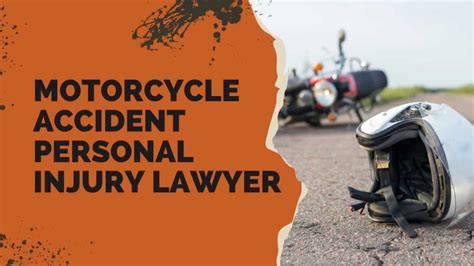
Being involved in a motorcycle accident can be a traumatic experience, and navigating the legal system can often feel overwhelming. That’s why it’s important to seek the guidance of a motorcycle injury lawyer who can provide you with the necessary advice and support. Here are some valuable tips to help you navigate the legal system and ensure you receive the compensation you deserve.
1. Consult with a Motorcycle Injury Lawyer
The first step in navigating the legal system after a motorcycle accident is to consult with a knowledgeable motorcycle injury lawyer. They will be able to assess your case, provide legal advice, and guide you through the entire process. It’s crucial to choose a lawyer with experience in motorcycle accident cases to ensure you have the best possible representation.
2. Gather Evidence
Collecting evidence is essential in building a strong case. Take photos of the accident scene, your injuries, and any damage to your motorcycle. Obtain copies of the police report, medical records, and any witness statements. This evidence will help support your claim and establish liability.
3. Document Your Injuries and Expenses
Keep detailed records of your injuries, medical treatments, and expenses related to the accident. This includes medical bills, rehabilitation costs, lost wages, and any other expenses incurred as a result of the accident. These records will be crucial in determining the compensation you are entitled to.
4. Be Cautious with Insurance Companies
Insurance companies may try to settle your claim quickly and for a lower amount than you deserve. It’s important to be cautious when dealing with insurance adjusters and not to accept any settlement offers without consulting your lawyer first. They will negotiate on your behalf to ensure you receive fair compensation.
5. Understand the Legal Process
It’s important to have a basic understanding of the legal process involved in your case. Your lawyer will guide you through each step, but being informed will help you make informed decisions. Familiarize yourself with terms such as discovery, depositions, and settlement negotiations to better navigate the legal system.
6. Be Prepared for Litigation
In some cases, litigation may be necessary if a fair settlement cannot be reached. Your lawyer will prepare your case for trial, including gathering additional evidence, interviewing witnesses, and presenting your case in court. Being mentally and emotionally prepared for litigation is essential to navigate this aspect of the legal system.
7. Stay in Communication with Your Lawyer
Open and frequent communication with your motorcycle injury lawyer is crucial throughout the legal process. They will keep you updated on the progress of your case, answer any questions you may have, and provide guidance along the way. Trusting and maintaining a good relationship with your lawyer is key to navigating the legal system successfully.
Frequently Asked Questions
- What should I do immediately following a motorcycle accident?
- How long do I have to file a motorcycle accident claim?
- What factors determine the amount of compensation I can receive?
- Can I still pursue a claim if I was partially at fault for the accident?
- What if the other party involved in the accident is uninsured?